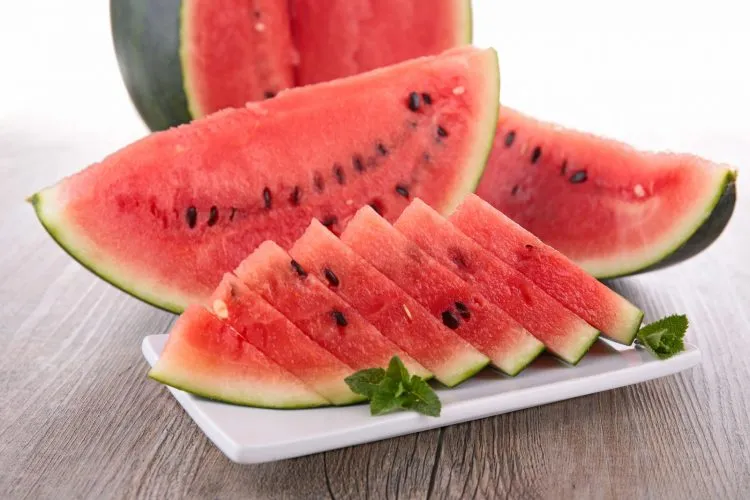The watermelon is one of those foods that we often see in the "no´s" and "avoid" list.As you have read before, fruits are foods that can be incorporated into a food plan of those who live with some type of diabetes.Among other things, watermelon can help us hydrate in very hot days and of course it is full of nutrients (and nutrients that we will now talk to you).
Watermelon contains: vitamin C, vitamin A, potassium, magnesium among others.
In addition, it also contains lycopene and beta carotene, two substances that are being studied for their benefits to protect our body from different types of cancer and that has some relationship with antioxidants.
Benefits for our health
Remember that natural foods and accessories should not replace the formal medical treatment and prescribed by health professionals but should be used as "supplements" or "accessories" as its name indicates and of course, after talking with our multidisciplinary team.
** Health benefits
Preliminary studies have found that the watermelon help in combat of the accumulation of plaque in the arteries that could cause a heart attack.The watermelon contains citrulin which is transformed into arginine, two amino acids that can help maintain arteries, blood flow and cardiovascular function in general.
Watermelon (and other fruits also) have a very low fat content and few calories (only 30 calories per 100 g of watermelon)
The watermelon is a wonderful source of Beta Caroteno which becomes the body in vitamin A. This vitamin helps produce pigments in the eye retina and protects against macular degeneration related to age.
A daily slice of watermelon rises energy levels by up to 23%.This is because the watermelon contains vitamin B6, a vitamin that the body uses to synthesize dopamine, which is the hormone to feel good.It also contains magnesium, a mineral that helps in cell function so that the body has energy all day.


